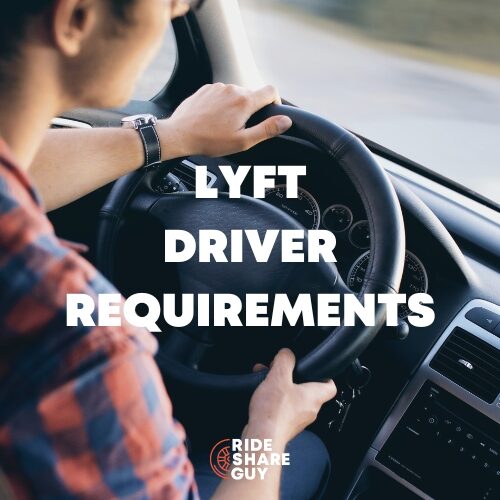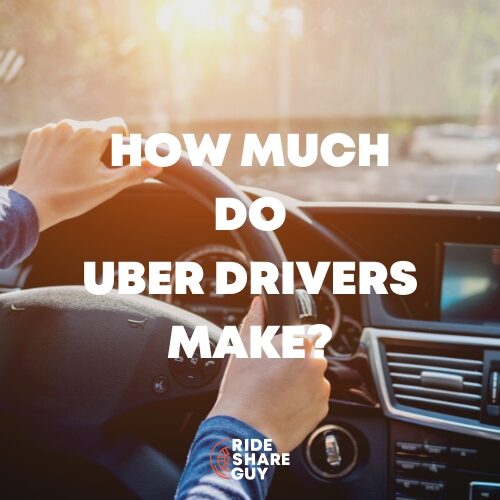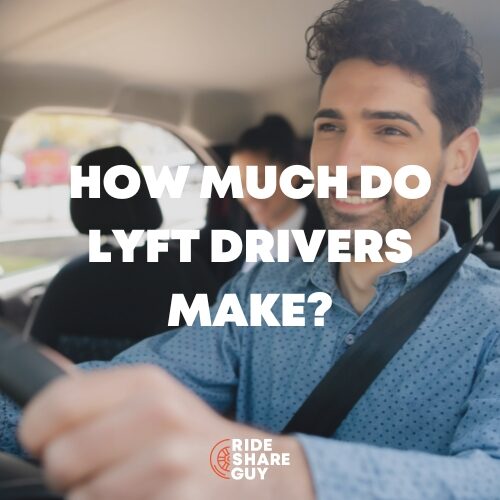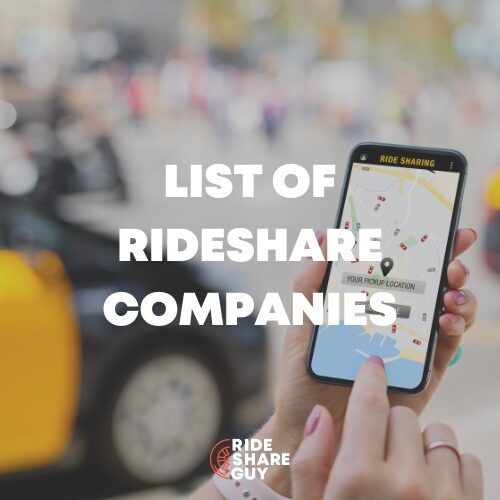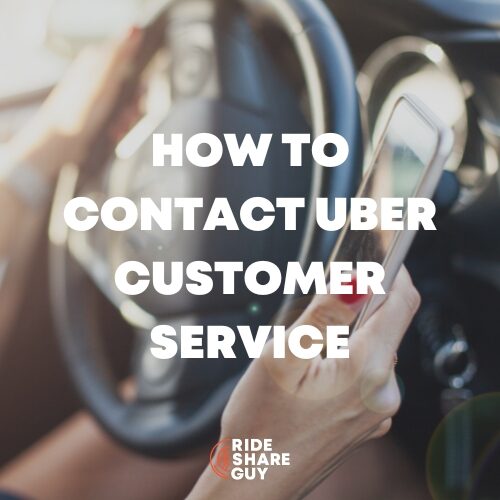Uber vs Lyft, which rideshare company is the best to work for?
While there are other Uber competitors out there, the main battle for rideshare dominance is between Uber vs. Lyft.
Below, we share which rideshare company pays the best, which company is the best rideshare to work for overall, and more.
Uber vs Lyft: Disclaimer
Before we dive into how great rideshare jobs are, and which rideshare company pays the best, I just want to mention a few things.
You need to know your market. Some markets will be different, so the best rideshare company in my area could possibly not be the best in your area.
This becomes even more obvious when some services are completely unavailable in some areas, whereas in others you can make more than any other service.
If, however, Uber and Lyft are both available in your city and demand is roughly equal, then keep reading to see which service we prefer the most!
Uber vs Lyft: Coverage
Uber and Lyft operate in both the United States and Canada, but Uber’s reach expands beyond just these two countries.
As of January 2023, Uber is available in over 90 countries, which was more than last year and the year before. I think it’s safe to say that they are expanding on a global scale every year.
⭐️ Uber is the obvious winner here since they are accessible in 88 more countries than its rideshare counterpart Lyft.
Learn More:
Uber vs Lyft: Pay
The most important thing to consider is how much money you can make. When RSG contributor Sergio recently covered the Uber vs. Lyft demand in terms of surges/promotions/bonuses, he came down on the side that Uber is better.
Base Pay
Both Uber and Lyft pay you per mile. You’ll also get a small amount of money per minute. When I first started Lyft had the best per-mile and per-minute amount, over $1 per mile and around $0.10 per minute. Now though, you are unlikely in most areas to make that much.
Neither company reports how much a driver makes in each area, but many are around $0.70 per mile. Some drivers who have been driving longer make a little more, since they were grandfathered in at higher rates.
I’ve found in my area that both Lyft and Uber stay around the same in pay. When one goes up, so does the other, and the same is true when one goes down.
For me, Lyft is the clear winner here, simply because they don’t seem to have different pay for different drivers. I don’t like the idea that someone can be making more or less than me simply because they started driving at a different time than me. I strongly believe that a rising tide lifts all boats, so if we all make more we can all benefit.
Tips
Both Uber and Lyft allow riders the option to leave tips within the app. However, there is one major difference between both apps when it comes to tips.
With Uber, you have up to 30 days after the completed ride to tip within the app. With Lyft, you only have up to 72 hours to tip after the ride has been completed. On their website, Lyft mentions that if you want to tip after the 72-hour deadline then you would need to contact customer support so that they can do it for you.
I think it’s clear that Uber is the winner in this department since they allow up to 30 days after the completed ride compared to Lyft which only allows up to 3 days after the completed ride.
Number of Rides
If you don’t have a passenger in your car, you are not making money. So if you have the best promotions offered, and the most amount of money being made per mile, it all means nothing if you don’t get rides.
Lyft tends to, in my experience, be people who had bad experiences with Uber, or people who feel like they are part of a special club outside of the “Uber corporation”. Depending on the size of your market, there may be enough people that you are busy, but you could be waiting a long time.
The winner for me is Uber. I’ve done just Uber and just Lyft, and I almost always make more driving Uber, simply because I get more rides with them. I enjoy driving for Lyft more, the passengers are typically better, more likely to tip, and it’s more relaxing.
But at the end of the day, those things don’t pay my bills, so I have to go with Uber as the best rideshare for the number of rides I get.
⭐️ Uber is a clear winner in the ‘which rideshare company pays the best’ debate, especially when it comes to driver promotions. This is true whether it’s in Los Angeles or upstate New York.
Related:
Uber vs Lyft: Bonuses
Both Uber and Lyft offer bonuses, but they’re called different things depending on the platform.
Uber Promotions and Quests
Uber has Promotions and Quests. Each week you’ll receive notifications from Uber, through email, text message, or the driver app itself, telling you of the promotions for that week.
I have received ones as small as an extra $10 for 10 rides, and as much as $100 extra for 3 rides. Obviously, the better the promotion the more likely you are to get out and drive, which is why Uber’s promotions and quests are better when they have fewer drivers in your area.
Lyft Promotions
Lyft too has promotions at times, or guarantees of making a certain amount of money per hour. Unfortunately, in my market (southern Florida), I haven’t seen any Lyft promotions in a long, long time.
In addition to weekly quests, you can get a bonus on each ride or surge through both Lyft and Uber. Sometimes it’s an extra $0.50 to get a ride, sometimes it’s several dollars. Or it could be a percentage. Again, this depends on the need at the moment for drivers in that specific area.
⭐️ So which is better, Lyft or Uber? In this area, I’ve found Uber to be the clear winner. With promotions, guarantees, and surges I was able to make over $2,000 in less than 32 hours on the road, over $60 an hour.
Related:
Uber vs Lyft: Services
Both Uber and Lyft offer multiple services and have a few in common.
There is Uber XL, which is comparable to Lyft XL, and both services offer a bigger ride such as an SUV or minivan than the typical sedan/compact vehicle if you want a little extra space.
There is also Uber Lux and Lyft Lux which offer premium rides like luxury vehicles for a higher price tag.
Food delivery is one major service that Uber offers while Lyft doesn’t. Uber Eats is the name of their service and they can deliver food, groceries, and/or alcohol to you.
⭐️ For that simple fact alone, Uber has the edge over Lyft since it is another way to earn even more money with Uber while Lyft has yet to add such a feature to their app.
Uber vs Lyft: Rideshare for Women
There is no specific ‘rideshare for women’ company out there, at least not one that’s available nationwide. In the debate between Lyft vs. Uber, which rideshare company is a better platform for women?
According to the female drivers we’ve interviewed, including senior RSG contributor Paula, neither company is great… however, Uber has recently launched a number of new safety features, including:
- Trip recording
- Safety reminders
- Enhancing ride check
⭐️ Both companies have a long way to go before female drivers feel truly safe, but Uber has made a number of strides to improve driver safety.
Related:
Uber vs Lyft: Gas Surcharge
Does Uber or Lyft pay for drivers’ gas? In the past, neither company paid for drivers’ gas costs, but recently Uber reversed course and decided to pay drivers a temporary fuel surcharge between 45 and 55 cents!
⭐️ This is a BIG DEAL and heavily tips our decision in favor of Uber.
Related:
Uber vs Lyft: Which Rideshare Company is Better?
For me, the winner of which rideshare company is better is Uber. Your mileage may vary, but in my experience, I tend to make the most amount of money with the least amount of work when driving for Uber. That’s important!
The reasons I find Uber to be a better company in the Uber vs. Lyft debate are:
- Better pay overall
- More promotions and opportunities
- Additional safety features
